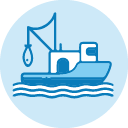
Text
Sectoral Agenda 21 Human Settlement : agenda for developing sustainable quality of life
In industrialized countries, the consumption patterns of cities are severely stressing the global ecosystem, while settlements in the developing world need more raw material, energy, and economic development simply to overcome basic economic and social problems. Human settlement conditions in many parts of the world, particularly the developing countries, are deteriorating mainly as a result of the low levels of investment in the sector attributable to the overall resource constraints in these countries. In the low-income countries for which recent data are available, an average of only 5.6 per cent of central government expenditure went to housing, amenities, social security and welfare.1 Expenditure by international support and finance organizations is equally low. For example, only 1 per cent of the United Nations system's total grant-financed expenditures in 1988 went to human settlements,2 while in 1991, loans from the World Bank and the International Development Association (IDA) for urban development and water supply and sewerage amounted to 5.5 and 5.4 per cent, respectively, of their total lending On the other hand, available information indicates that technical cooperation activities in the human settlement sector generate considerable public and private sector investment. For example, every dollar of UNDP technical cooperation expenditure on human settlements in 1988 generated a follow-up investment of $122, the highest of all UNDP sectors of assistance. This is the foundation of the "enabling approach" advocated for the human settlement sector. External assistance will help to generate the internal resources needed to improve the living and working environments of all people by the year 2000 and beyond, including the growing number of unemployed - the no-income group. At the same time the environmental implications of urban development should be recognized and addressed in an integrated fashion by all countries, with high priority being given to the needs of the urban and rural poor, the unemployed and the growing number of people without any source of income.
Availability
| B1004623 | 364.464 IND s | Archivelago Indonesia Marine Library - Perpustakaan Kementerian Kelautan dan Perikanan | Available |
Detail Information
- Series Title
-
-
- Call Number
-
364.464 IND s
- Publisher
- Jakarta : Sectoral Agenda 21 Project, kerjasama dengan Kementrian Lingkungan Hidup dan UNDP., 2001
- Collation
-
xiii, 133 hlm.
- Language
-
English
- ISBN/ISSN
-
979-8362-32-2
- Classification
-
364.464
- Content Type
-
-
- Media Type
-
-
- Carrier Type
-
-
- Edition
-
-
- Subject(s)
- Specific Detail Info
-
-
- Statement of Responsibility
-
-
Other version/related
No other version available
File Attachment
Comments
You must be logged in to post a comment
 Perikanan Tangkap
Perikanan Tangkap  Perikanan Budidaya
Perikanan Budidaya  Pengolahan Ikan
Pengolahan Ikan  Pulau Kecil
Pulau Kecil  Masyarakat Pesisir
Masyarakat Pesisir  Local Content
Local Content  Ekspor Perikanan
Ekspor Perikanan  Illegal Fishing
Illegal Fishing  Ilmu - Ilmu Sosial
Ilmu - Ilmu Sosial  Geografi dan Sejarah
Geografi dan Sejarah